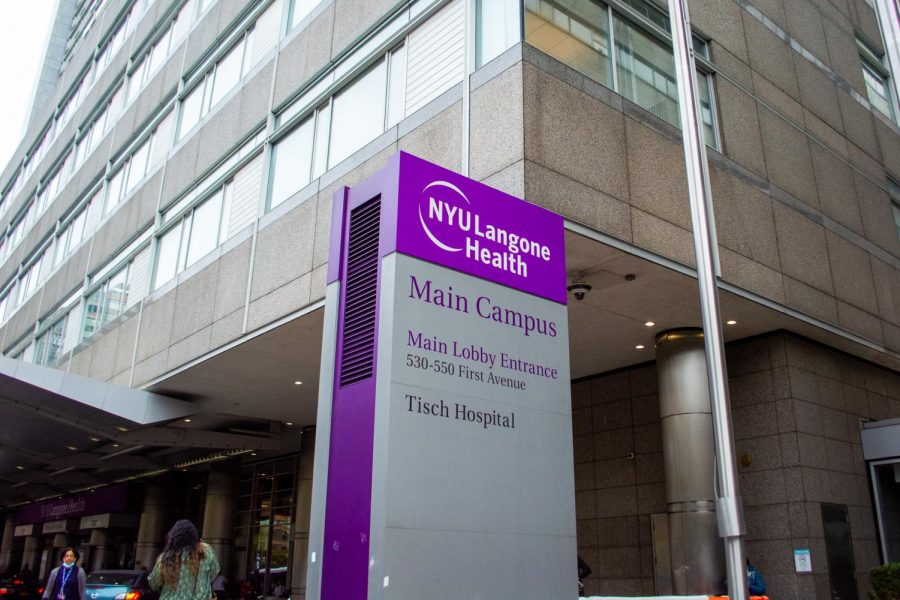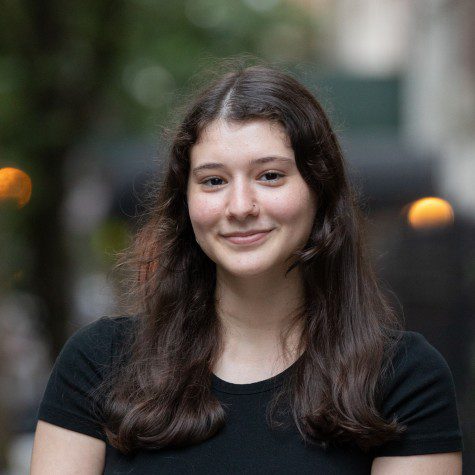Patient group says Langone long COVID research forgets patients
The Patient-Led Research Collaborative for Long COVID published an open letter to the National Institutes of Health and NYU Langone Health expressing concerns over the success and integrity of the initiative.
On Nov. 29, members of the Patient-Led Research Collaborative for Long COVID wrote an open letter on the NIH’s RECOVER initiative to study long COVID-19. The letter expressed worries about the initiative and made suggestions on how to ensure its success. (Staff Photo by Manasa Gudavalli)
December 8, 2021
JD Davids, a research advocate for HIV and other post-viral infections, had been living with multiple, complex chronic conditions before he contracted COVID-19 for the first time in March 2020. He has now added long COVID-19 to his list of conditions.
Davids noticed flaws within the National Institutes of Health’s RECOVER initiative to study long COVID-19 — primarily the lack of involvement of long COVID-19 patients in planning the research.
“Seeing that this was not happening with this really important study was very distressing to me,” he said. “I wanted to make sure that people with long COVID-19 and those with other post-viral conditions knew what was going on so they could give input. That’s what’s going to get us the best and fastest answers that we need to save people’s lives.”
Long-term COVID-19 symptoms can range from any original symptoms of COVID-19 to severe impacts on vital organs such as the heart or brain. It can also lead to increased rates of hospitalization.
In September, Leora Horowitz, Stuart D. Katz and Andrea B. Troxel — three researchers at NYU Langone — were awarded a $470 million grant by the NIH to study long COVID-19 as a part of the RECOVER initiative. In an interview with WSN, Katz said that he planned to incorporate his experiences with long COVID-19 into his work.
Along with other members of the Patient-Led Research Collaborative for Long COVID — a group of patients living with long COVID-19 who are conducting research on the illness — Davids wrote an open letter on the RECOVER initiative. The letter, published on Nov. 29, voiced concerns about the initiative and offered adjustments that could be made to ensure its integrity and success.
Lisa McCorkell, co-founder of the PLRC, told WSN that these concerns — including the lack of patient engagement and basic information on the purpose and scope of the research — had been ignored by RECOVER.
“We have many concerns that could be addressed if we had the opportunity to review,” she said. “We have been invited to the patient engagement calls and hope to have the opportunity to more meaningfully collaborate with the Langone team and RECOVER to ensure the study is helpful for people with long COVID-19 and people with related post-infectious illnesses.”
Alexis Misko, who was previously a full-time occupational therapist, has been a long COVID-19 patient since October 2020 and believes that members of the collaborative can bring unique perspectives. Since most members are former professionals with backgrounds in research, science and policy, they can give necessary advice to NIH, NYU and other organizations affiliated with RECOVER.
“Patient-Led has been a wonderful leader in long COVID advocacy, and we as patients look to them with trust as our representatives,” she said. “It’s frankly embarrassing to watch the level of medical ignorance, and simultaneous arrogance, that is on display both in this initiative and in long COVID clinics.”
Misko added that the initiative appears to neglect research on other post-viral infections and conditions comorbid with long COVID-19 such as chronic fatigue syndrome, postural tachycardia syndrome and mast cell activation syndrome. Both Misko and Davids believe that the initiative would have greater success if healthcare workers with long COVID-19 and concurrent conditions were further integrated into the research.
“In addition to the wisdom that people have about our own bodies, experiences and needs when we are experiencing a condition, we also have people who professionally have a lot of insight to give, because they already were working in the medical field,” Davids said. “This is such an important opportunity to bring all kinds of knowledge into these efforts from the beginning, rather than having to course correct afterwards.”
According to Davids, several members of the PLRC met with NYU staff on Monday to begin a dialogue about concerns over the study. Although he isn’t sure about the exact nature of the conversation, one of the primary goals of the PLRC is urging NYU to act on its acknowledgment that there should be meaningful involvement of patient advocates who serve alongside researchers, not just on an advisory board, but at every level of the initiative.
As a long COVID-19 patient and former healthcare professional, Misko is tired of hearing the same failed promises about long COVID-19 research from groups such as RECOVER.
“The past experiences and expertise of people with disabilities must not be erased the moment they become sick,” Misko said. “Long COVID-19 patients are smart enough to see past the performative acts and claims made of patient involvement by the NIH. They are, so far, not listening to the important recommendations of prominent patient advocacy groups. We need the NIH to match their words with actions.”
Despite vaccinations, everyone is still at risk of getting long COVID-19, including those who have asymptomatic infections. Davids warns that without dedicating proper research and care to the issue, long COVID-19 may become more serious, debilitating and permanent.
“There are millions of us out here,” he said. “Our society is harmed by not having our contributions or when our families are struggling to get the care we need. Everyone is really still at risk.”
A spokesperson for Langone did not immediately respond to a request for comment.
Contact Rachel Fadem at [email protected].

























































































































































